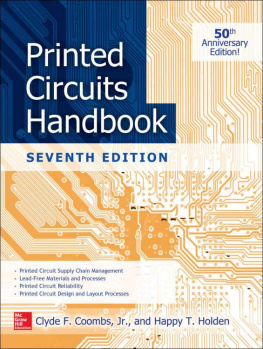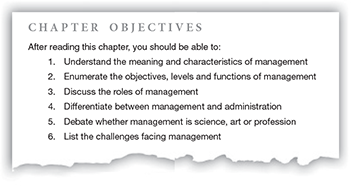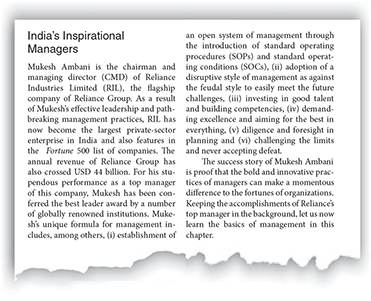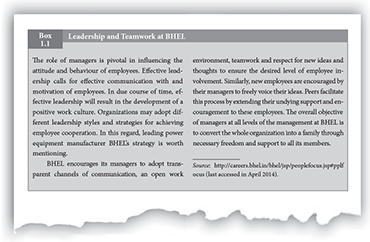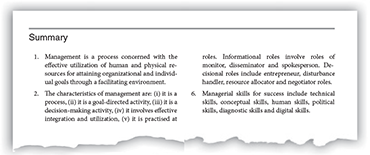Preface
To the First Edition
In todays fast-paced, complex and culturally-diverse work environment, managers often find their existing knowledge inadequate and outdated. These managers need to learn, utilize and adapt modern management concepts and practices to achieve corporate and personal excellence. Principles of Management has been written in response to these increasing requirements of practising managers and students of management. This book enables future managers to get acquainted with current management concepts, practices and trends even before stepping into the actual work environment.
This comprehensive and reader-friendly book covers the entire field of management and enables individuals to perform their managerial functions with precision and confidence. To facilitate better, deeper and easier understanding of management concepts, each chapter in the book has several unique real-life examples, including the inspirational life stories of globally renowned managers.Principles of Management also satisfies the long-felt need of Indian students for a book with Indian case studies and examples, and highlights the challenges faced by managers in organizations from the developing world.
To the Second Edition
In a knowledge society, continuous learning is no longer an option but a basic necessity. Managers should keep themselves abreast of the changes and developments in their profession. However, managers have little time to understand, assimilate and absorb those changes and benefit from them. In this regard, this new edition will enable the practicing managers and the student community to keep track of the changes in various facets of managements and develop strategies to deal with those changes. The second edition of Principles of Management is a revised and updated edition with discussions on several new and important topics like Managing Sexual Harassment, Value Based Management, Employee Life Cycle, Green HR Practices and Employee Engagement.
In this edition, the chapters on staffing are thoroughly revised and consolidated into two main chapters keeping in mind the recent developments in Human Resource Management. The new chapters are Human Resource Management-Processes and Human Resource Management-Policies and Practices.
In second edition, new case studies are introduced in several chapters and as a unique initiative; solutions to these cases are made available in the companion site of this book. Though there can be no universally acceptable solution to the case studies, the well experienced managers have analysed the situations given in the cases and developed solutions based on their field knowledge and experience. These analysis and solutions to the cases will help the readers in properly understanding and analysing the case studies and finding their own solutions.
Organization
This book has 19 chapters, which help students and practising managers acquire insights into the different domains of management. Based on the functions and trends in management, these chapters are divided into seven parts. Each part has been given adequate weightage in terms of treatment and coverage to help readers gain detailed knowledge even on emerging areas of management; namely, change management, strategic management and international management. The seven parts and their objectives are:
Part IManagement: A Conceptual Framework familiarizes readers with the elements, evolution and environment of management and also elaborates on the social responsibilities of managers.
Part IIPlanning, Decision Making and Forecasting focuses extensively on all activities connected with organizational planning.
Part IIIOrganizing enables readers to gain insights into the organizing function. The areas of discussion in this part include organizational structure and authority, responsibility and accountability.
Part IVStaffing discusses the management of human resources (HR). This part includes Human Resource Management-Processes and Human Resource Management-Policies and Practices.
Part VDirecting elaborates on the important elements of directing; namely, communication, leadership and motivation.
Part VIControlling and Coordination discusses the topics that facilitate efficient control of the organizational resources. This part comprises chapters on controlling and coordination.
Part VIIEmerging Topics provides an insight into emerging areas of management such as change management and international management.
Features
Each chapter includes some unique features that help readers gain an in-depth understanding of the concepts in the chapter.
Learning Objectives
The learning objectives outline the main learning goals of each chapter.
Chapter-opening Vignettes
Examples from the lives of inspirational Indian managers are used to illustrate complex management concepts.
Real-world Examples
Numerous boxes highlight the unique management practices of Indian companies and provide students with real-world applications and perspectives.
Summary
The summary at the end of each chapter recapitulates the key topics discussed in the chapter.






